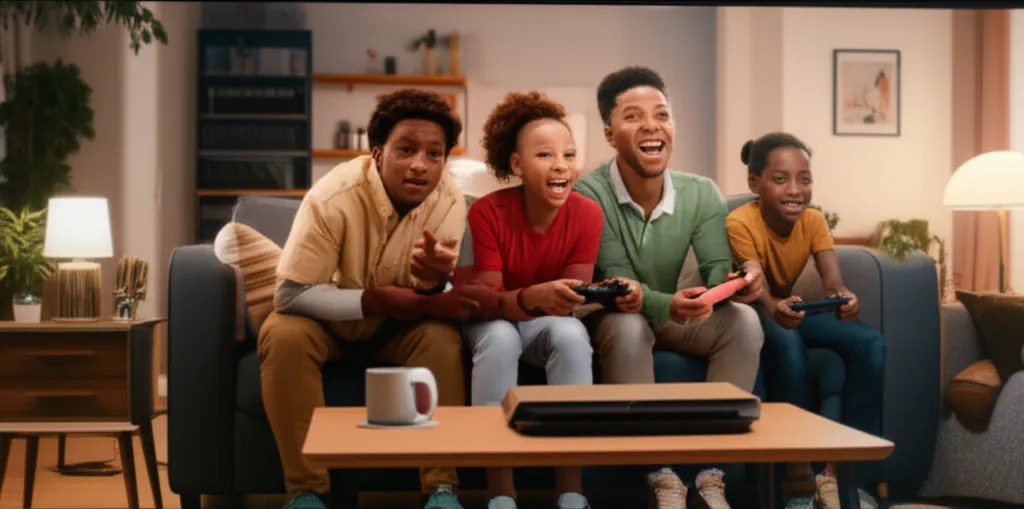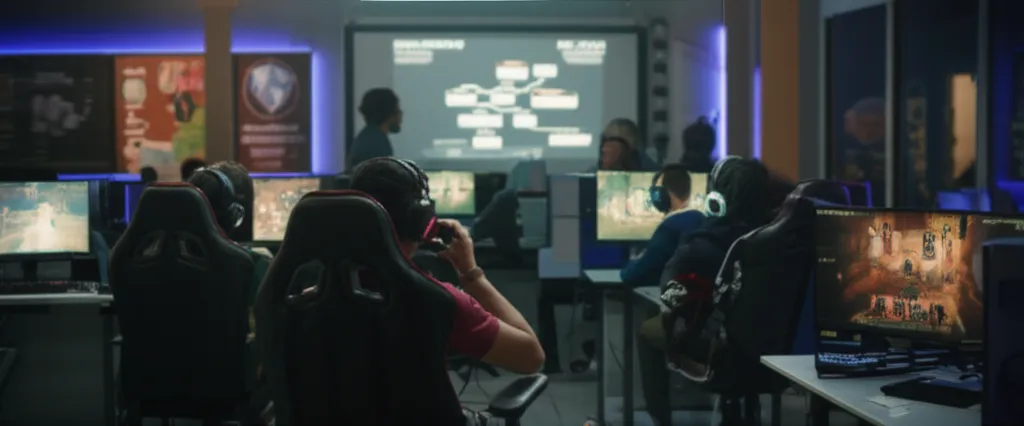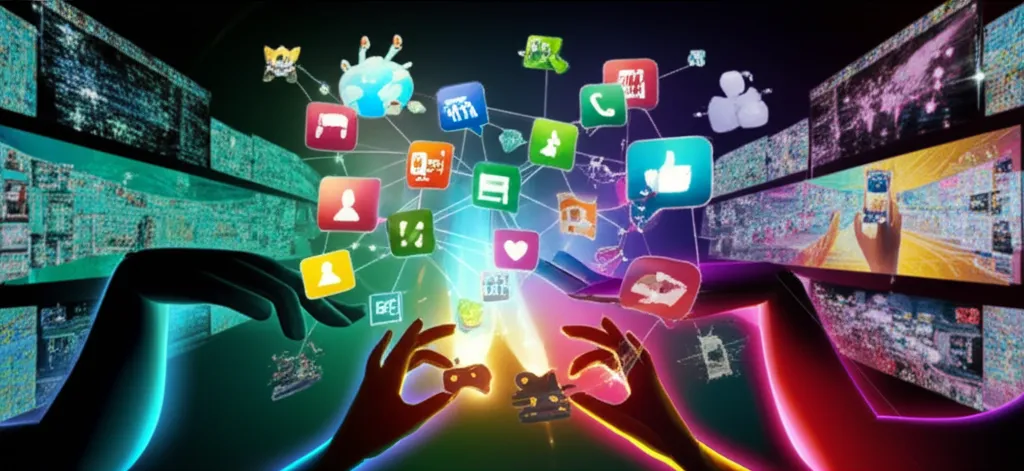You think you know what it means to be a 'cool parent'—until you’re shot down in Fortnite by your own kid in a banana suit. If that sounds absurd, well, welcome to my living room. I grew up in an era where TV was considered the great corrupter and now find myself leaping—sometimes literally—into my children’s digital adventures. Here’s the plot twist: The world of video games isn’t just eating up our kids’ free time, it’s serving up remarkable opportunities for connection, learning, and (trust me on this) humility. Buckle up, because what started as an attempt to stay relevant with my kids has turned into a journey bridging generations—and no, you don’t need to know how to open a treasure chest to reap the rewards.
1. When Your Kids Leave You in the Digital Dust: Why Parents Should Play (and Fail) Together
If you’ve ever watched your kids play video games and thought, “I could do that,” you’re not alone. Many parents see their children—digital natives—effortlessly racking up points in games like Fortnite or Mario Kart and wonder what it would be like to join in. But here’s the truth: when you finally pick up the controller, you might find yourself spinning in circles while your kids are already opening treasure chests and building forts. And that’s exactly where the magic happens.
Embracing Awkward First Moves
The first time you play video games with your kids, expect to feel lost. You might not know how to open a door or even move your character. Your kids, ages ten and twelve, will be lightyears ahead—racing through the game, collecting loot, and showing off skills they’ve honed since they could hold a controller. But don’t let that stop you. The benefits of childhood gaming aren’t just for kids; they’re for you, too.
- Connection grows out of shared struggle and silliness. When you’re the worst player on the team, you’re inviting your kids to teach, guide, and even rescue you.
- Laughter breaks down barriers. There’s something special about laughing at yourself as your middle child crashes a semi-truck through a wall to save you, all while dressed as a giant banana.
- Digital play flips traditional roles. For once, your kids are the experts, and you’re the student. This shift can open new lines of communication and trust.
The Unexpected Joy (and Humility) of Letting Your Children Teach You
When you’re down and out in Fortnite, you might hear your twelve-year-old say,
“Hold on, mom.”Suddenly, your child is building a structure out of thin air and healing you—a moment of teamwork and support that’s hard to find outside the digital world. Your middle child might sigh,
“Why do I have to?”before helping you up, but even that is a moment of connection.
These moments are more than just funny stories. Research shows that playing video games with your kids improves relationships and provides quality time. It’s a unique way to assess what your children are playing, understand their interests, and grow together emotionally. Cooperative games like Fortnite teach teamwork, patience, and mutual support—skills that are just as valuable offline.
Laughter: The Secret Sauce for Family Bonding
You might feel silly, frustrated, or completely out of your depth, but don’t quit. The laughter you share—at your own expense or theirs—becomes the glue that holds these memories together. When you play video games with kids, you’re not just passing time; you’re building a bridge between generations. The benefits of childhood gaming extend to the whole family when you’re willing to play (and fail) together.

2. The Esports Classroom: What Video Games Really Teach Kids (Beyond Button-Mashing)
When you think of video games, you might picture kids glued to screens, mashing buttons. But look closer, and you’ll see something much bigger happening. Video games, especially esports, are quickly becoming a 21st-century training ground for leadership, strategy, and communication. In today’s digital age, the impact of video games goes far beyond entertainment—they’re shaping the next generation of problem-solvers and leaders.
Esports Education: Life Skills Beyond the Game
Imagine a classroom where your child isn’t just memorizing facts, but practicing real-world skills: teamwork, resilience, and strategic thinking. That’s what’s happening in the world of esports education. In South Dakota, for example, esports is now a sanctioned high school activity. This means students are joining teams, practicing together, and competing—just like traditional sports. But instead of a ball, their tools are controllers and keyboards.
- Leadership: Every match needs a captain. Esports teaches kids to step up, make decisions, and support their teammates.
- Communication: Success in games like Fortnite or Rocket League depends on clear, quick communication—skills that transfer directly to school and work.
- Strategic Thinking: Players must analyze situations, adapt strategies, and solve problems on the fly.
- Resilience: Losing a match isn’t the end—it’s a chance to learn, adapt, and try again.
Research shows that digital play supports autonomy, competence, and identity development. In fact, 53% of parents recognize improved problem-solving through gaming, and 48% see creativity benefits. Even more impressive, 48% of young gamers earn excellent academic grades. When parents encourage video gaming with healthy limits, the benefits multiply.
The Power of Connection: Esports Bridges Generations
Video games aren’t just for kids. They’re a bridge between generations, creating new ways for families to connect. Take Uncle Amos, for example. Living in New Zealand (and before that, Germany), he’s never been in the same country as his nieces and nephews. Long phone calls didn’t work, but hopping into a game of Fortnite changed everything. Suddenly, they were making memories together, learning new skills, and building bonds that distance couldn’t break.
“Anyone can play, compete, grow and win in esports.”
Inclusivity: Where Everyone Belongs
One of the most overlooked impacts of video games is their inclusivity. In the esports classroom, age, ability, and background don’t matter. Whether you’re a teen, a parent, or an uncle halfway across the world, you can join the game. This digital playground is open to everyone, making it a powerful tool for building social skills and confidence.
- 95% of parents allow kids to play video games
- Esports teams now thrive within school walls
- Digital teamwork prepares kids for real-life challenges
So, the next time you see your child gaming, remember: they’re not just playing—they’re practicing for life.

3. Navigating the Digital Playground: Supervision, Surprises, and Saying Yes to Connection
Let’s be honest: as a parent, the world of video games and online spaces can feel overwhelming. You worry about screens, strangers, and the unknown. It’s natural to want to protect your children, especially when they’re chatting with people you’ve never met. But what if, instead of building walls, you stepped into this digital playground with them? What if parental supervision in gaming became your bridge to connection, not just your shield?
Facing Fears, Finding Joy
Many parents see video games and children as a complicated mix—full of risks and uncertainties. But when you join your child in these digital spaces, something surprising happens. As one parent shared,
“There is a joy in these spaces because this is a shared space, and we can have shared experiences here.”Instead of just worrying about what might go wrong, you get to witness the laughter, teamwork, and creativity that thrive in online games. You’ll see firsthand how anyone—regardless of age or background—can play, compete, grow, and win together.
Presence Over Policing: Transforming Risks Into Life Lessons
Parental supervision in gaming isn’t about hovering or policing every move. It’s about being present, learning alongside your child, and guiding them through the digital world. When you play together, you can:
- Teach digital etiquette and safety in real time
- Model empathy, sportsmanship, and resilience
- Build trust by showing genuine interest in their passions
Instead of just setting rules, you’re opening conversations. You’re helping your child develop emotional intelligence and digital citizenship—skills they’ll use far beyond the screen. This approach to navigating digital spaces with children turns potential dangers into shared life lessons, making the online world safer and more meaningful for everyone.
Unexpected Life Hacks: Blending Families Through Gaming
Sometimes, video games offer solutions you never expected. For example, introducing your children to a new partner or blending families can be awkward and stressful. But what if you could break the ice in a fun, low-pressure way? One parent found that playing Fortnite together online was the perfect “life hack” for this moment. Before meeting in person, everyone hopped into a game, laughed, and worked as a team. The digital playground became a safe space to connect, easing nerves and building bonds before the first handshake.
Demystifying Digital Play: The Power of Connection
When you step into your child’s gaming world, you’re not just supervising—you’re sharing. You’re showing them that you care about what matters to them. This builds trust, strengthens your relationship, and helps you guide them safely. Parental involvement demystifies digital play, making it less scary for both you and your child. It’s not about control; it’s about connection. And in these shared spaces, you’ll discover not just the risks, but the unexpected joys waiting for you both.

Wild Card: Memory Lane and the Family Console—Why Playtime Makes Us Human
Rewind your memory to a time when screens were forbidden fruit, and the idea of a kid playing video games was met with raised eyebrows. Maybe your parents, like mine, warned that TV would rot your brain, or that video games had no place in a “proper” childhood. Yet, if you grew up in the nineties—especially in the wilds of rural South Dakota—you know the truth was more complicated. Sure, there were days spent riding cattle or daring friends to touch the electric fence, but the real magic happened the Christmas my family dusted off the old TV and plugged in a brand-new Nintendo 64.
That console, with its four controllers and promise of multiplayer mayhem, transformed our living room into a playground of laughter and connection. Suddenly, video games and family bonding weren’t just possible—they were inevitable. My brothers and I raced through Diddy Kong Racing, sometimes I even won. But the real prize wasn’t the high score; it was the way playtime let us see a new side of our dad. Normally strict and serious, he became playful, carefree, and downright hilarious when he picked up a controller. In those moments, the boundaries between parent and child faded, replaced by shared joy and vulnerability. This is the hidden wellspring of intergenerational bonding video games can offer—moments where everyone is just a teammate, a rival, or a co-conspirator in fun.
Years later, my brother Ezra told me about a day when Dad came home on his lunch break, sat down for “just one game” of Halo, and ended up staying for hours. When Ezra finally asked, “Don’t you have to be at work?” Dad just grinned and said,
“Work can wait. We’re saving the world right now.”He wasn’t a gamer by nature, but in that moment, he understood the positive impact video games can have on children and families. The game was just the backdrop; the real story was the connection, the laughter, and the memory that would last a lifetime.
These stories resurface over the years, especially after loved ones are gone. The consoles may gather dust, but the memories remain vivid—proof that the best family legacies aren’t measured in high scores, but in the stories and moments shared. Research shows that video games build generational bridges that persist long after the power is off. They shape how we parent, how we relate, and how we remember each other. When you look back, you won’t remember every level you beat, but you’ll never forget the day your dad skipped work to save the world with you.
So, the next time you pick up a controller with your family, remember: you’re not just playing a game. You’re building a legacy of laughter, vulnerability, and love. That’s why playtime—digital or otherwise—makes us human.




